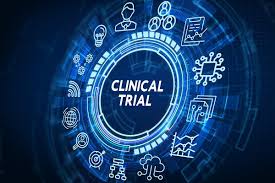- Performance-Enhancing drugs: Athletes may use anabolic steroids in large doses to increase muscle size, work out harder, and recover faster after exercises.
- Prescription Painkillers and Prescription Drugs: These include prescription opioids such as OxyContin and Vicodin, which, when abused by athletes, can cause euphoria and relaxation in addition to pain relief.
- Stimulants: Athletes frequently use stimulants to enhance performance, feel euphoric, or remain awake for an extended period.
Why Do Professional Athletes Use Substance Abuse?
Athletes may abuse prescription or illicit substances for a variety of reasons, including the following:
- Enhance athletic ability. Athletes may resort to performance-enhancing medications such as steroids to obtain an advantage over their opponents.
- Adapt to adversity, such as mental illness. Physical ailments are frequently treated in athletes. However, they are less likely to seek treatment for mental illness. Certain athletes might self-medicate with drugs or alcohol.
- Accommodate stress. On and off the field, athletes frequently experience enormous pressure. Certain athletes may use medicines to cope with this pressure.
Drug Use in Athletes: Negative Effects
- Suspension and prohibition of participation. Athletes who breach these regulations may face severe repercussions, including suspensions or penalties.
- Disadvantaged employment or premature retirement. Drug addiction can hinder an athlete’s ability to concentrate and have a detrimental effect on his or her performance, resulting in job loss or early retirement.
- Medical issues Anabolic steroid use can cause liver and kidney damage, hypertension, and mental health problems such as sadness, anger, and violence.
Athletes’ Rehabilitative Programs
Athletes who deal with substance abuse can seek assistance from a variety of different types of recovery programs:
- Inpatient treatment programs: These are programs in which individuals reside at a facility for the duration of their therapy. Treatment duration varies according to the degree of care received. Intensive group, individual, and family therapy, as well as detoxification, aftercare, and medication management are all available services.
- Outpatient treatment programs: These programs provide therapy for a few hours each week and allow participants to return to their homes or another residence during non-treatment hours.
- Twelve-step programs can assist individuals in developing relationships with other recovering individuals and locating support throughout the recovery process. Typically, 12-step programs offer a variety of therapies that can be beneficial in assisting athletes in overcoming disorders of substance use.
- Cognitive behavioral therapy (CBT) is an addiction treatment method that teaches individuals how to recognize and modify harmful thoughts and actions. Therapists assist individuals in seeing the connection between their ideas, feelings, and actions and in developing relapse prevention and coping strategies.
- Motivational interviewing assists individuals in early recovery to overcome their resistance to change. The objective is to assist individuals in recognizing the negative implications of their substance use, developing motivation to quit, and initiating change.
If You Are an Athlete or A Victim of Substance Abuse, Do Not Hesitate to Contact Taylor Recovery Centre for Assistance.
We recognize that whether or not you are an athlete, addiction may negatively influence your life and the lives of your loved ones. If you’re ready to seek treatment for drug or alcohol addiction, please contact one of our compassionate admissions navigators at Taylor Recovery Centre to learn more about our treatment options.











